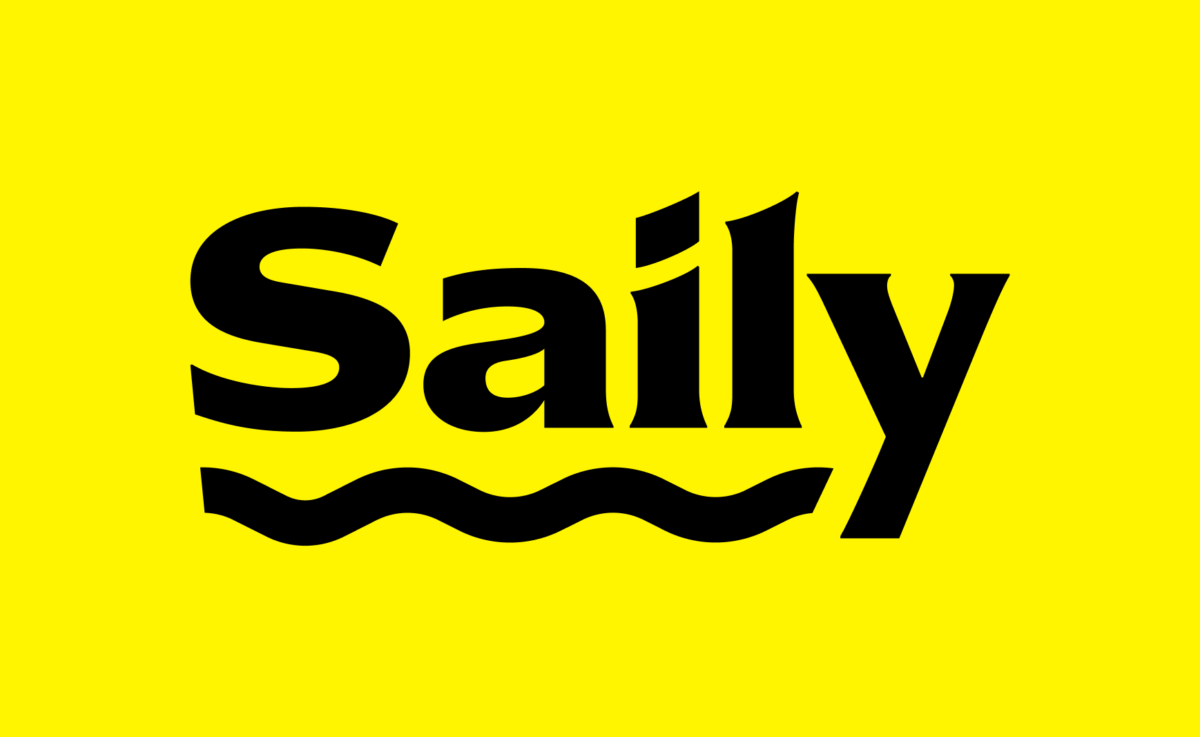
Digital Nomads – 5 Best Places
in Switzerland
The 5 Best Places for Digital Nomads in Switzerland
Thinking about working remotely while taking in some of the most scenic landscapes in Europe? Switzerland offers an incredible environment for digital nomads. You’ll discover cities with top-notch internet connectivity, robust expat communities, and a quality of life that’s hard to beat. Here is our guide to the 5 best places for digital nomads in Switzerland
In this article, you’ll explore the best spots in Switzerland tailored for digital nomads. No matter if you’re looking for affordable living, expat scenes, or simply need reliable Wi-Fi, you’ll find a place that suits your needs. Read on to find your next base in Switzerland!

Heya! I’m Juan, I’m a recent newcomer to the travel scene but I am loving every minute of it. I am eager to share my stories and experiences as I go 🙂
Affiliate Disclosure: Some of the links on our site are affiliate links, meaning, at no additional cost to you, we may earn a commission if you click through and make a purchase. This helps us to continue providing valuable content and supports our efforts in bringing the travel community together. We only recommend products and services we believe in and think you’ll find useful. Complete details are included in our affiliate disclaimer. Thank you for your support!
In a Hurry? Here's our Key Info for This Article
- Geneva offers co-working spaces and city life
- Basel is ideal for art lovers with reliable internet
- Lausanne provides scenic views and a strong tech community
- Bern's relaxed atmosphere makes it great for productivity
- Lugano combines lakeside beauty with high-speed internet
- Winterthur is known for its affordability and quality of life
Stay Connected
Things to Do
Essential Apps
Surfshark VPN
Stay safe online and continue accessing all your services just like back home.
Budget Tips
What is a Digital Nomad?
A digital nomad is someone who leverages technology to work remotely while exploring different parts of the world. You might find yourself typing away on your laptop from a cozy café in Zuone day, and then hopping on a call with clients from a beach in Bali the next. The flexibility of being a digital nomad allows you to immerse yourself in various cultures, all while maintaining your professional commitments. The appeal lies in the freedom and adaptability this lifestyle offers. With reliable internet and a solid work ethic, you can call anywhere home. Popular destinations for digital nomads often include places with communities and good infrastructure. For instance, check out the Danish nomad scene the for some inspiration on where to set up your next remote office.
Other Places to Work Remotely in Europe
1. Zurich – Perfect for Digital Nomads


Zuis a city that seamlessly mixes old-world charm with modernity. With its financial district and picturesque old town, it’s a haven for digital nomads looking for a balanced lifestyle.
Top Attractions
Zuoffers a plethora of attractions. The Bahnhofstrasse, one of the world’s most exclusive shopping avenues, is a must-see for any visitor. For history buffs, the Swiss National Museum showcases the history and culture of Switzerland. You can also explore Lake Zu ideal for a leisurely boat ride or a scenic walk along its shores. The Lindenhof district provides panoramic views of the city, while the Kunsthaus Zuart museum holds an impressive collection of modern and contemporary art. Zurich is an absolutely stunning city, so investment in a camera is always a good idea. The insta360 will capture your full experience while be light and compact.
Best Time to Visit
The best time to visit Zuis during the summer months, from June to August, when the weather is warm and the city is buzzing with festivals. Winter is perfect for those who enjoy snow and Christmas markets.
Local Cuisines
Zus culinary scene is a delightful mix of traditional Swiss and contemporary international cuisine.
– Rösti: A Swiss dish made of grated potatoes, fried until crispy.
– Zürcher Geschnetzeltes: A classic Zudish made from sliced veal with cream and white wine sauce.
– Fondue: Melted cheese served with bread for dipping.
– Birchermüesli: A healthy breakfast dish made from rolled oats, yogurt, and fresh fruits.
Budgeting for Zurich
Zurich can be pricey, but budgeting smartly can make your stay affordable. Accommodation ranges from $100 to $200 per night for a mid-tier hotel. Dining at a mid-range restaurant will set you back around $25-$40 per meal.
2. Geneva – Best for Cosmopolitan Flair
Geneva, often dubbed the “Peace Capital,” is a dazzling cosmopolitan hub nestled between the Alps and Jura mountains. This city boasts a perfect mix of Swiss efficiency and international panache.


Top Attractions
Geneva is brimming with attractions that cater to a variety of interests. Start with the iconic Jet d’Eau, a towering water fountain in Lake Geneva that reaches up to 140 meters. For history buffs, the St. Pierre Cathedral offers a glimpse into the city’s past, featuring archaeological sites and panoramic views from its towers. Art enthusiasts must visit the Musée d’Art et d’Histoire, which houses an impressive collection of fine arts, archaeology, and applied arts.
For a more experience, the Parc des Bastions offers beautiful gardens and giant chessboards. Don’t miss the United Nations Headquarters, where you can take guided tours to learn about international diplomacy. If you have a penchant for the outdoors, a boat tour on Lake Geneva provides breathtaking views of the surrounding mountains.
Best Time to Visit
The best time to visit Geneva is from June to August when the weather is warm and festivals abound. However, spring and fall offer milder temperatures and fewer tourists, making for a more relaxed experience. Winter is ideal if you enjoy snow sports, given Geneva’s proximity to ski resorts.
Local Cuisines
Geneva offers a diverse culinary scene influenced by its international residents and Swiss traditions. Here are some must-try dishes:
– Fondue: A classic Swiss dish made from melted cheese, served with bread for dipping.
– Rösti: Crispy potato fritters often served as a side dish or topped with eggs and cheese.
– Filets de Perche: Fresh perch fillets from Lake Geneva, typically pan-fried and served with lemon and tartar sauce.
– Papet Vaudois: A comforting dish of leeks and potatoes stewed together, often accompanied by sausage.
Budgeting for Geneva
Geneva is known for being a pricey destination. Expect to spend around $150-$200 per night for mid-range accommodation. Dining at a mid-tier restaurant will cost approximately $30-$50 per person. For budget-conscious travelers, street food and local markets offer tasty yet affordable options.
For those looking to explore more digital nomad-friendly spots, check out the [Top Belgium nomad spots](https://www.horizonjumpers.com/best-places-for-digital-nomads-in-Belgium).
3. Basel – Best for Art and Culture
Basel, a city straddling the borders of Switzerland, France, and Germany, is renowned for its art scene and cultural heritage.


Top Attractions
Basel is home to an array of top-notch attractions. The Kunstmuseum Basel houses an impressive collection of artworks spanning from the Middle Ages to contemporary periods. The Tinguely Museum showcases the quirky kinetic art of Jean Tinguely. Basel’s Old Town, with its cobbled streets and medieval buildings, offers a glimpse into the city’s past. The Basel Minster, a stunning Gothic cathedral, provides panoramic views of the Rhine River. For a modern twist, visit the Vitra Design Museum, just over the German border. Basel also hosts the world-famous Art Basel fair, attracting art lovers from around the globe. While here, do yourself a favour and brush up on your German basics to ensure a smooth journey.
Best Time to Visit
The best time to visit Basel is during the spring and summer months (April to September). The weather is mild, and you’ll experience numerous festivals, including the Basel Carnival and Art Basel. Winter visits can be quaint too, especially during the Christmas markets, but be prepared for colder temperatures.
Local Cuisines
Basel offers a delightful array of local cuisines. You must try:
– Basler Läckerli: A traditional hard spice biscuit made with honey, almonds, candied peel, and Kirsch.
– Rösti: A Swiss potato dish, similar to hash browns, often enjoyed with cheese or bacon.
– Zopf: A plaited bread typically enjoyed on Sundays, made with white flour, milk, eggs, butter, and yeast.
– Fondue: While not unique to Basel, Swiss fondue is a must-try, a pot of melted cheese served with bread for dipping.
Budgeting for Basel
Basel isn’t the cheapest destination, but you can manage a reasonable budget. Expect to pay around $150 per night for mid-range accommodation. A meal at a mid-tier restaurant will set you back about $30-$50. Public transport is efficient, and you can save money by purchasing a BaselCard for discounts and free rides.
4. Lausanne – Best for Lakeside Charm
Lausanne, perched on the northern shore of Lake Geneva, offers a mix of scenic beauty and cultural depth. This Swiss city is perfect for those who love outdoor activities and historical sites.


Top Attractions
Lausanne is brimming with attractions suited to a variety of interests. The Olympic Museum is a must-visit, celebrating the history of the Games with interactive exhibits. Art enthusiasts will appreciate the Collection de l’Art Brut, showcasing outsider art. The Lausanne Cathedral, a stunning example of Gothic architecture, offers panoramic views of the city. For nature lovers, the Esplanade de Montbenon provides a spot to relax, while the nearby Lavaux Vineyards, a UNESCO World Heritage site, are perfect for a leisurely hike and wine tasting.
Best Time to Visit
The best time to visit Lausanne is between May and September. Summers offer pleasant temperatures ideal for exploring the city and enjoying the lake. Winter is quieter but provides a cozy atmosphere and opportunities for winter sports in nearby Alpine resorts.
Local Cuisines
Lausanne’s culinary scene is a delightful mix of traditional Swiss and international flavors. Here are some local dishes you should try:
– Fondue: Melted cheese served with bread cubes for dipping.
– Rösti: A Swiss-style hash brown made from grated potatoes.
– Perch Fillets: Fresh fillets from Lake Geneva, often served with lemon and herbs.
– Papet Vaudois: A hearty dish of leeks and potatoes, typically accompanied by sausage.
Budgeting for Lausanne
Expect to spend around $150-$200 per night for mid-range accommodation. Dining out at a mid-tier restaurant will likely cost around $30-$50 per meal. For more affordable options, consider local markets and casual eateries.
For more digital nomad tips, check out top Austria nomad spots for a good comparison.
5. Bern – Best for History Buffs
Bern, the capital of Switzerland, is a city that effortlessly marries medieval charm with modern convenience. Its cobblestone streets and well-preserved architecture offer a glimpse into the past, all while providing the amenities a digital nomad in Switzerland could need.


Top Attractions
The UNESCO World Heritage-listed Old Town is a must-see, featuring the famous Zytglogge clock tower. The Bern Cathedral, with its stunning views from the tower, is another highlight. Art lovers should not miss the Zentrum Paul Klee, dedicated to the works of the famous Swiss painter. For a touch of nature, the Rose Garden offers panoramic views of the city. The Bear Park, home to the city’s emblematic animals, is also a unique attraction.
Best Time to Visit
The best time to visit Bern is during the summer months, from June to August, when the weather is warm and perfect for exploring the city’s outdoor attractions. However, the winter months offer a magical, snowy landscape, ideal for those who enjoy winter sports and Christmas markets.
Local Cuisines
Bern’s cuisine is a delightful mix of Swiss traditions:
– Rösti: A crispy potato dish often served as a side or topped with various ingredients.
– Berner Platte: A hearty platter featuring various meats, sauerkraut, and potatoes.
– Cheese Fondue: A communal pot of melted cheese served with bread for dipping.
– Meringue with Double Cream: A sweet treat made from egg whites and sugar, served with creamy double cream.
Budgeting for Bern
Bern can be pricey. Expect to spend around $150 per night for mid-range accommodation. A meal at a mid-tier restaurant will typically cost about $30. However, the quality of life and amenities make it a worthwhile investment for those considering expat communities in Switzerland.
Packing Guides and Tips
When planning your digital nomad journey in Switzerland, packing smartly is crucial. Your tech essentials should top the list, especially if you’re setting up in cities like Geneva or Zu known for their expat communities in Switzerland. A reliable laptop is non-negotiable, ideally one with a long battery life, given that you might find yourself working in cafes or co-working spaces with varied power outlet availability. Ensure you pack a universal adapter and a high-capacity power bank; these will be lifesavers during train journeys through the Swiss Alps or when you’re exploring the scenic beauty of Thun between work sessions.
Switzerland’s weather can be unpredictable, so layering is your best strategy. Pack lightweight, moisture-wicking clothing for Basel’s mild summers, as well as thermal layers for the colder months in St. Gallen. Don’t forget a waterproof jacket—Swiss weather can shift rapidly, and you’ll want to stay dry as you walk around the picturesque streets of Lucerne. Comfortable walking shoes are a must; Swiss cities are best explored on foot, and you’ll need sturdy footwear for everything from wandering around Geneva’s old town to hiking trails in Bern.
Lastly, don’t overlook the importance of personal items. A reusable water bottle is essential, as Switzerland prides itself on its pristine drinking water. Basic first-aid supplies, toiletries, and any prescription medications should be packed in easily accessible sections of your luggage. Given the high cost of living, consider bringing snacks and non-perishable food items, especially if you’re looking for affordable living in Switzerland. Budgeting in a decent travel insurance like Safetywing is vitally important in case of emergencies. If you’re curious about other nomad-friendly destinations, check out the Top Australian nomad spots for some inspiration.
Digital Nomad Switzerland Best Places Concluding Thoughts
Switzerland offers a myriad of opportunities for digital nomads, with Geneva, Basel, and Lausanne standing out as top choices. Geneva’s international flair and coworking spaces make it a hub for networking, while Basel’s cultural ess and efficient transport system provide a balanced work-life atmosphere. Lausanne, with its lakeside views and tech-friendly environment, offers an inspiring backdrop for remote work. These cities provide the perfect mix of professional and personal fulfillment, ensuring your experience as a digital nomad in Switzerland is both productive and enjoyable.
Switzerland’s Top 5 Places for Digital Nomads FAQ
Zu Geneva, Basel, Lausanne, and Bern are considered the top cities for digital nomads. These cities offer excellent coworking spaces, fast internet, and a high quality of life.
Switzerland is one of the most expensive countries in the world. Expect to pay premium prices for accommodation, food, and transport. However, the quality of services and amenities is top-notch.
Yes, Switzerland boasts some of the fastest and most reliable internet connections in the world, making it an ideal place for digital nomads who rely on consistent online access.
Absolutely, Swiss cities like Zuand Geneva have numerous coworking spaces equipped with modern facilities. These spaces are perfect for networking and productivity. Joining a co working space is helpful with building a friend group. A social life will ultimately encourage a good work life balance.
Depending on your nationality, you may need a visa to stay in Switzerland for extended periods. Research the visa requirements for your specific situation to ensure smooth travel plans. For more options in Europe, check out Croatia’s top nomad spots.



















